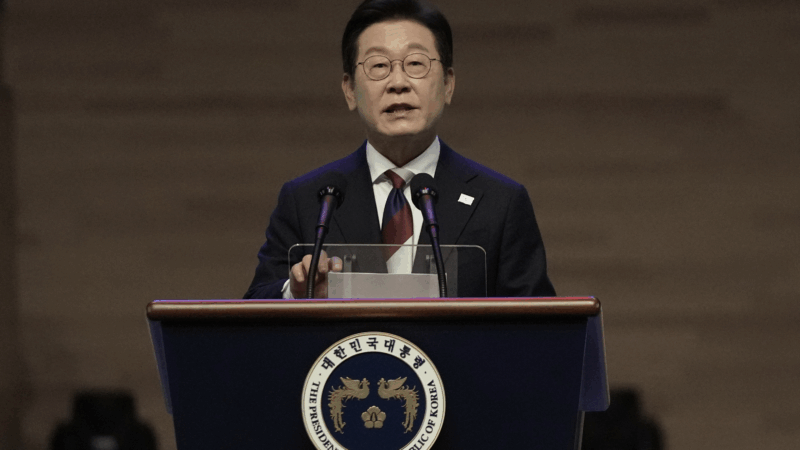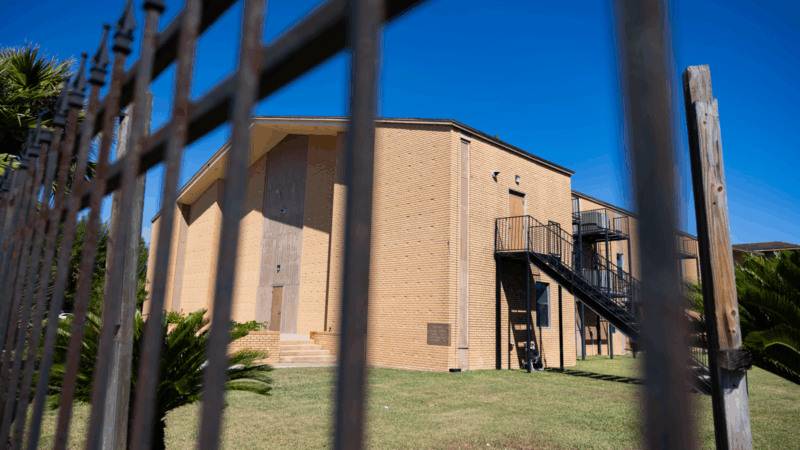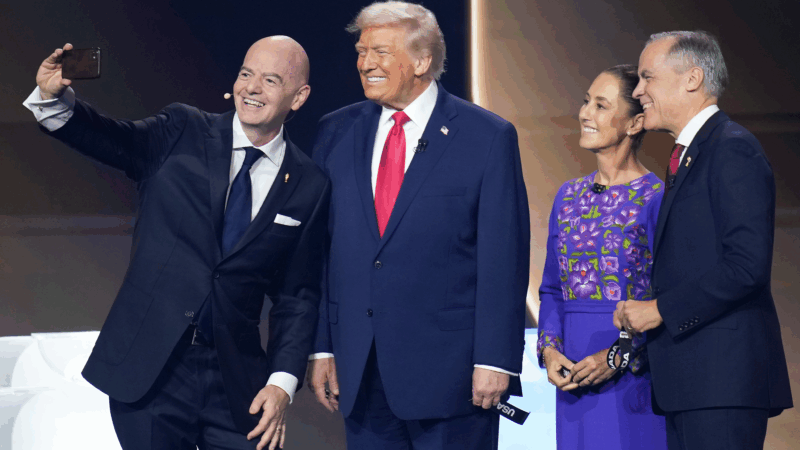South Korean President Lee to meet with Trump in Washington on Monday
SEOUL, South Korea — En route to his first summit with President Trump, South Korea’s president has pushed back against U.S. pressure to refocus his country’s 71-year-old military alliance with the U.S. away from deterring North Korea and toward countering China.
“This is not an issue we can easily agree with,” Lee Jae-myung told reporters during his flight to Washington, D.C., hinting at the challenges waiting for him at the White House.
The Trump administration is calling for modernizing the 71-year-old U.S.-South Korea alliance, forged in the wake of the Korean War.
The U.S. has some 28,500 troops stationed in South Korea. For about two decades, it has called for “strategic flexibility” to deploy them to meet security challenges away from the Korean Peninsula. And it wants South Korea’s support, including potentially sending troops to other countries and regions.
South Korea has previously sent soldiers to assist the U.S. in Vietnam and Iraq. But it considers North Korea, not China, its main threat, and does not want to get dragged into a conflict with China over, for example, Taiwan.
“For the South Koreans, what’s at stake is really alliance credibility, and also defense and deterrence against North Korea,” says Andrew Yeo, an expert on Asia and U.S.-South Korea relations at the Brookings Institution in Washington, D.C.
Lee Jae-myung said over the weekend that he will raise a full range of issues related to North Korea with President Trump, including the need to engage diplomatically. Pyongyang continues to insist that it has no interest in dialogue with Seoul or Washington.
Ban Kil Joo, an associate professor at the Institute of Foreign Affairs and National Security, a South Korean government-funded think tank, says cooperating with the U.S. on strategic flexibility would help “step up South Korea’s leverage over the United States.”
At the same time, Ban says, “South Korea needs to avoid designating the name of a specific country [China] as a major threat that these two countries should offset or counter.”
South Korea’s challenge of securing a trade deal
For decades, the default setting for many U.S. allies and partners in Asia has been to depend on the U.S. military for security, while relying on China for markets and trade.
Lee Jae-myung wants to assert autonomy and independence from the big powers, but it’s not clear what options he has other than walking a fine line between them.
Lee also has the formidable challenge of turning a verbal agreement and loose framework, agreed upon last month, into a full-fledged trade deal with the U.S.
To lower U.S. tariffs on South Korean exports from 25% to 15%, South Korea has pledged to invest $350 billion in the U.S.
The U.S. says Trump will get to pick the investments, and the U.S. will reap 90% of the profits. South Korea’s industry minister has said that claim “does not make sense.”
Most of the $350 billion will be in the form of loans and guarantees, rather than direct investments.
The investments may include $70 million that South Korean shipbuilder Hanwha Ocean Co. will spend to expand shipyards in Philadelphia, which President Lee Jae-myung will visit during his U.S. trip.
It’s one example of how the U.S. is counting on South Korea to revitalize domestic manufacturing, and compete with China for dominance in hi-tech sectors, such as semiconductors.
But trade pressures are also one reason that Lee chose an unusual itinerary to the U.S.
Of 10 South Korean presidents since 1980, Lee is the only one to make his first overseas bilateral visit to a country other than the U.S. – in this instance, Japan (two visited Europe first for multilateral meetings before visiting the U.S.).
As recently as 2019, ties between South Korea and Japan were badly strained over historical and trade disputes, and the U.S. had to cajole the two to put aside their differences and cooperate on current security challenges, including dealing with North Korea and China.
Whereas South Korea and Japan competed to curry favor with the U.S. for decades, the Trump administration has now flipped the script, prompting the two neighbors to compare notes on how to deal with the risks posed by the U.S.
“We’ve experienced occasions when the U.S. had to lead the way for trilateral cooperation because the relationship between South Korea and Japan had soured,” South Korea’s National Security Advisor Wi Sung-lac explained.
“This time, South Korea and Japan lead the trilateral ties,” Wi told reporters in Tokyo.
NPR’s Se Eun Gong contributed to this report in Seoul.
Voting nears to a close in Texas primary that may be crucial to control of the Senate
The GOP and Democratic primaries mark a potential litmus test for what direction base voters want their parties to go ahead of midterm elections this fall that will determine power in Congress.
Pregnant migrant girls are being sent to a Texas shelter flagged as medically risky
Government officials and advocates for the children worry the goal is to concentrate them in Texas, where abortion is banned.
The 2026 World Cup faces big challenges with only 100 days to go
Will Iran compete? Will violence in Mexico flare up? And what about funding for host cities in the U.S.? With only 100 days left before it beings, the 2026 World Cup in North America is facing a lot of uncertainty.
A glimpse of Iran, through the eyes of its artists and journalists
Understanding one of the world's oldest civilizations can't be achieved through a single film or book. But recent works of literature, journalism, music and film by Iranians are a powerful starting point.
Mitski comes undone
She may be indie rock's queen of precisely rendered emotion, but on Mitski's latest album, Nothing's About to Happen to Me, warped perspectives, questionable motives and possible hauntings abound.
This quiet epic is the top-grossing Japanese live action film of all time
The Oscar-nominated Kokuho tells a compelling story about friendship, the weight of history and the torturous road to becoming a star in Japan's Kabuki theater.







